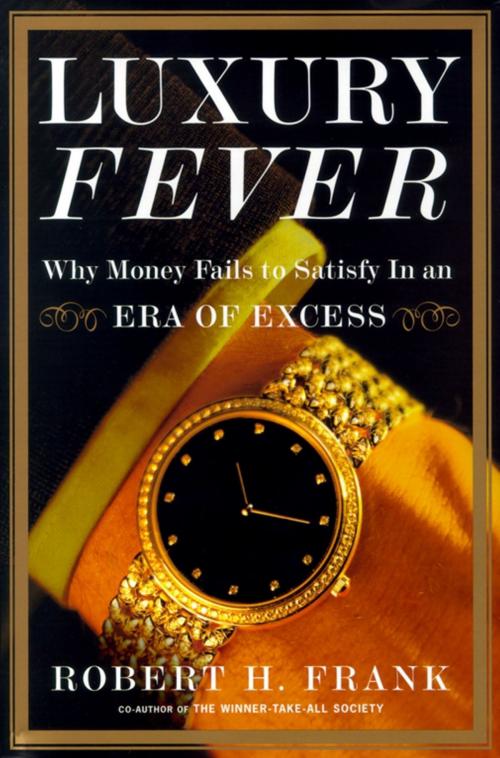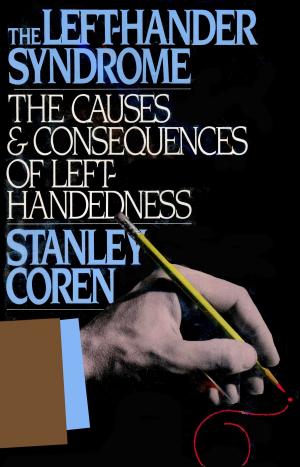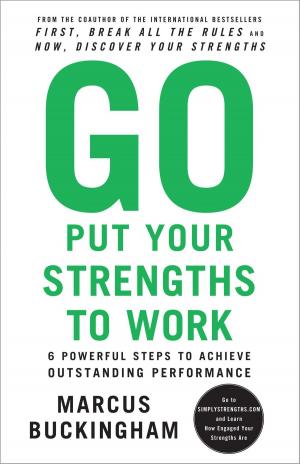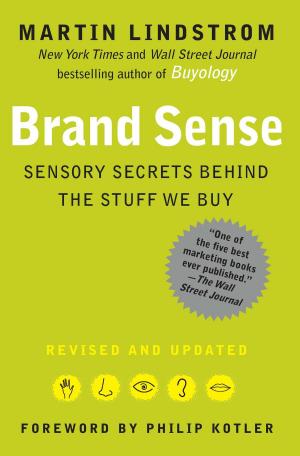Luxury Fever
Why Money Fails to Satisfy In An Era of Excess
Nonfiction, Social & Cultural Studies, Social Science, Sociology, Reference & Language, Reference, Business & Finance| Author: | Robert H. Frank | ISBN: | 9780743223409 |
| Publisher: | Free Press | Publication: | April 2, 2001 |
| Imprint: | Free Press | Language: | English |
| Author: | Robert H. Frank |
| ISBN: | 9780743223409 |
| Publisher: | Free Press |
| Publication: | April 2, 2001 |
| Imprint: | Free Press |
| Language: | English |
A new luxury fever has America in its grip. Independent of stock prices, recessions, and inflation rates, the past two decades have witnessed a spectacular and uninterrupted rise in luxury consumption. Ordinary, functional goods are no longer acceptable. Our cars have gotten larger, heavier, and far more expensive. Mansions larger than 30,000 square feet no longer seem extravagant. Wristwatches for the super-rich cost tens of thousands of dollars. We are living in an era of excess.
Consider:
-
The average house built in the United States today is nearly twice as large as its counterpart from the 1950s.
-
Even as houses have gotten more expensive and farther from the workplace, there has been a sharp increase in second-home ownership.
-
The average price of an automobile sold in the United States now exceeds $22,000, up more than 75 percent from a decade ago.
-
Total U.S. spending on luxury goods increased 21 percent between 1995 and 1996 (typical of recent years), while overall merchandise sales increased only 5 percent.
Robert Frank caused a national debate in 1995 when he and co-author Philip Cook described the poisonous spread of "winner-take-all" markets. Now he takes a thought-provoking look at the flip side of spreading inequality: as the super-rich set the pace, everyone else spends furiously in a competitive echo of wastefulness. The costs are enormous: We spend more time at work, leaving less time for family and friends, less time for exercise. Most of us have been forced to save less and spend and borrow much more. The annual rate at which American families file for personal bankruptcy has grown to one in seventy. Budgetary pressures have reduced our willingness to fund even essential public services: Our food and water are increasingly contaminated. Potholes proliferate, and traffic delays double every ten years.
Frank offers the first comprehensive and accessible summary of scientific evidence that our spending choices are not making us as happy and healthy as they could. Furthermore, he argues that human frailty is not at fault. The good news is that we can do something about it. We can make it harder for the super-rich to overspend, and capture our own competitive energy for the public good. Luxury Fever boldly offers a way to curb the excess and restore the true value of money.
A new luxury fever has America in its grip. Independent of stock prices, recessions, and inflation rates, the past two decades have witnessed a spectacular and uninterrupted rise in luxury consumption. Ordinary, functional goods are no longer acceptable. Our cars have gotten larger, heavier, and far more expensive. Mansions larger than 30,000 square feet no longer seem extravagant. Wristwatches for the super-rich cost tens of thousands of dollars. We are living in an era of excess.
Consider:
-
The average house built in the United States today is nearly twice as large as its counterpart from the 1950s.
-
Even as houses have gotten more expensive and farther from the workplace, there has been a sharp increase in second-home ownership.
-
The average price of an automobile sold in the United States now exceeds $22,000, up more than 75 percent from a decade ago.
-
Total U.S. spending on luxury goods increased 21 percent between 1995 and 1996 (typical of recent years), while overall merchandise sales increased only 5 percent.
Robert Frank caused a national debate in 1995 when he and co-author Philip Cook described the poisonous spread of "winner-take-all" markets. Now he takes a thought-provoking look at the flip side of spreading inequality: as the super-rich set the pace, everyone else spends furiously in a competitive echo of wastefulness. The costs are enormous: We spend more time at work, leaving less time for family and friends, less time for exercise. Most of us have been forced to save less and spend and borrow much more. The annual rate at which American families file for personal bankruptcy has grown to one in seventy. Budgetary pressures have reduced our willingness to fund even essential public services: Our food and water are increasingly contaminated. Potholes proliferate, and traffic delays double every ten years.
Frank offers the first comprehensive and accessible summary of scientific evidence that our spending choices are not making us as happy and healthy as they could. Furthermore, he argues that human frailty is not at fault. The good news is that we can do something about it. We can make it harder for the super-rich to overspend, and capture our own competitive energy for the public good. Luxury Fever boldly offers a way to curb the excess and restore the true value of money.















